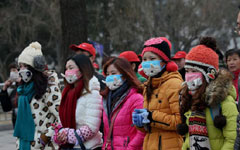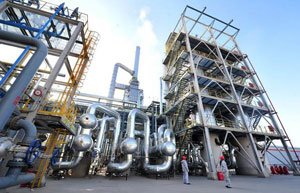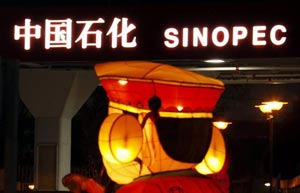Ineos Group Ltd, one of the world's largest chemical companies, will say on Friday it is taking units of Sinopec Group, China's largest oil refiner and distributor, to court.
The claim is against a number of Sinopec subsidiaries for misuse of acrylonitrile technology that is used in plastics and carbon fiber.
|
 |
|
 |
Sinopec denied all charges.
In an exclusive interview with China Daily, Tom Crotty, Ineos group director, alleges that Sinopec Ningbo Engineering Co has broken a long-established technology agreement, which together with misuse of Ineos' trade secrets by other Sinopec companies has enabled development of a series of large-scale acrylontirile plants without Ineos' agreement or consent.
Under a 1984 agreement, Sinopec Ningbo Engineering Co can build acrylonitrile plants in China and pay Ineos a fee.
But a newly commissioned acrylonitrile production facility at Sinopec Anqing was established without Ineos' knowledge.
Crotty said a hearing has begun at Beijing High Court. Arbitration will soon take place in Sweden as the agreement between Ineos and Sinopec is protected under Swedish law.
"We have good and valuable relationships with Sinopec and other Chinese companies across our business," Jim Ratcliffe, Ineos chairman, said. "But in this case, we have to take action to protect the interests of our stakeholders."
Lyu Dapeng, spokesman for Sinopec, told China Daily the charges "are groundless on factual and legal sides", and the company "respects intellectual property".
Lyu said Sinopec developed the technology through more than 50 years of work and has gained independent intellectual property rights for it. The company has applied for a number of Chinese patents.
There is no need to speculate on the case before a final judgment, Lyu said.
If the case reaches a reasonable conclusion, Ineos is happy to continue working with Sinopec, Crotty said.
Ineos has agreed to a joint venture with Tianjin Bohai in China for an acrylonitrile business. Production will start in 2016.
Crotty said Sinopec is damaging its relationship with Bohai because Bohai may feel unhappy to see a competing Chinese business using Ineos' technology for free.
Crotty said he is confident that the court will decide in Ineos' favor, because China has developed an excellent system to protect intellectual property.
|
 |
 |